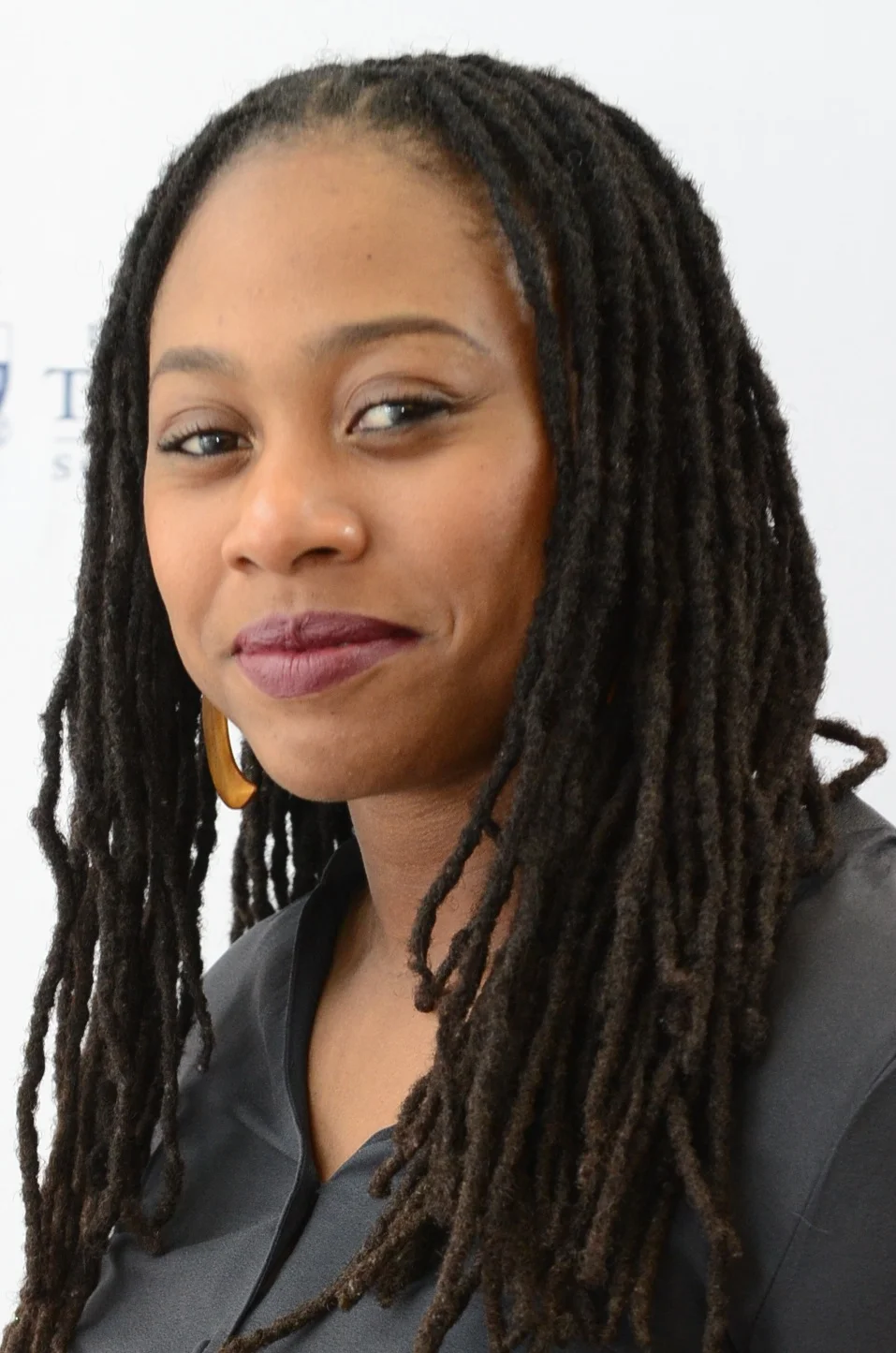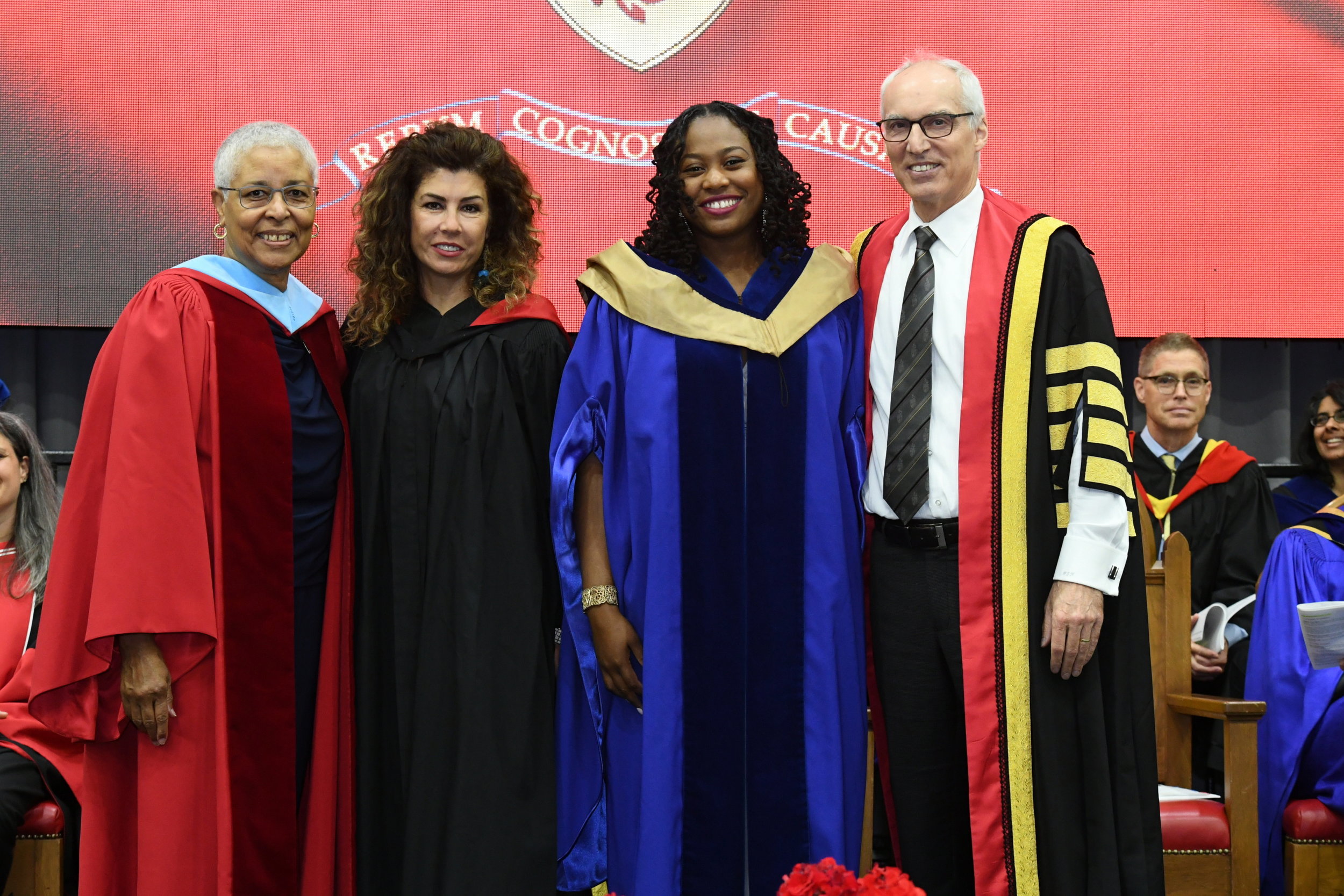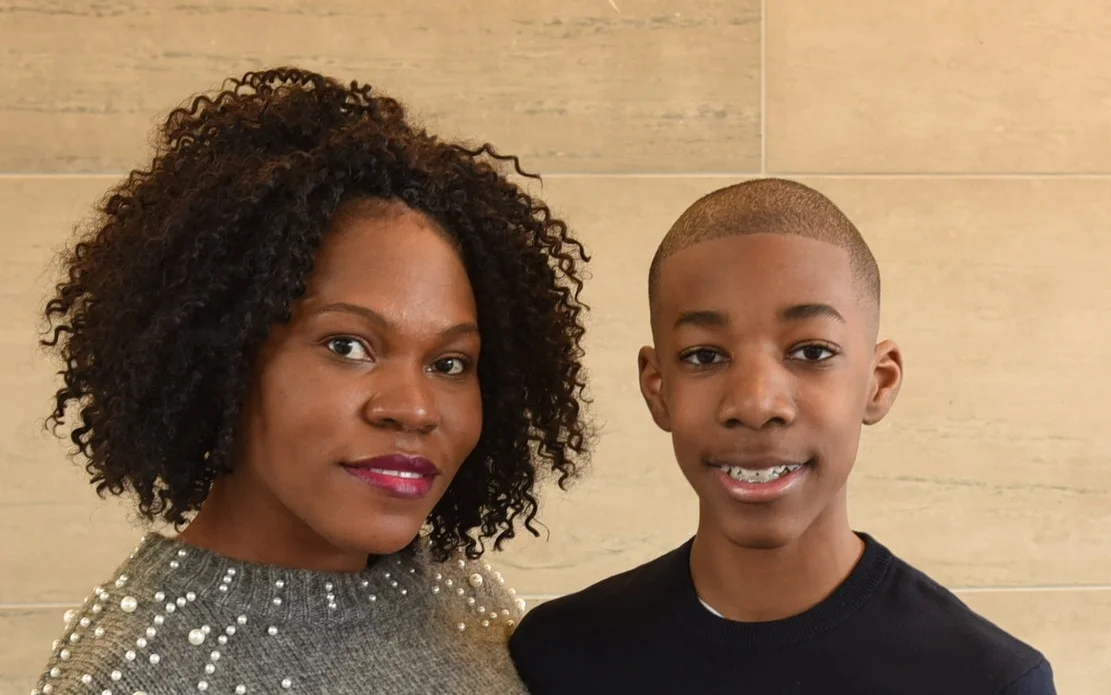Told in high school she's not university material, Litchmore is now a professor
August 14, 2019
Rashelle Litchmore could easily have fallen through the cracks in high school.
In Grade 12 just five months after migrating with her family from Jamaica, a West Hill Collegiate Institute guidance counsellor told her she wasn’t university material because her first semester Biology mark was in the mid-70s.
“That was just my first semester in a new school system and I had time to improve my grade,” said Litchmore. “I was more confused than hurt by his remark.”
Her resolve was again tested when she challenged her English teacher on the mid-term grade mark.
“My vocal disapproval was met with a blank stare and the manner in which she looked at me suggested I should have been proud of my grade,” Litchmore said.
By the end of the 2001-2 school year, her Biology mark improved to ‘A’ and she graduated with honours.
Last June, the Campion College graduate reached the highest level of degree a student can achieve, earning a Ph.D. in Applied Social Psychology from the University of Guelph.
Never one to doubt herself, Litchmore wasn’t going to let anyone stand in her way.
“At Campion, I had access to teachers that believed in me,” she pointed out. “I wasn’t an outstanding student and, in fact, I was recently looking at an old report card and some of the comments were, ‘Rashelle can do better if she tries a little bit harder and stop talking so much’. There was a baseline high expectation that pushed me.
“In Grade Nine in Jamaica, I had one of the highest grades in English and the teacher – as a reward – took me to a book fair. I felt so special that someone noticed I was working hard and getting good grades. That was a defining moment for me. For that guidance counsellor, who didn’t know me well, to say I wouldn’t get into university because my grades are not high, was flabbergasting.”
These negative experiences prompted Litchmore, in her second year at the University of Toronto Scarborough campus and then the Black Students Association president, to join hands with Tony Jno Baptiste and Natricia Drummond to start the Imani Mentorship Program (IMP) that offers customized academic and social support to youths in East Scarborough middle and high schools. The program aims to provide culturally relevant programming that supports the academic needs of a population that is under-represented in post-secondary education institutions
Dr. Rashelle Litchmore’s parents flew in from Jamaica for the special occasion
The curriculum revolves around homework, mentoring and programming that have student leaders guide a larger group of about 20 through Afro-centric curriculum.
The mentors spend at least three hours a week with the mentees from early October to the end of March.
With the program future in doubt in 2010 because of dwindling funds, former provincial Minister Mary Anne Chambers successfully lobbied the university to continue the initiative that is now administered through the U of T Department of Student Life.
As a parting gift to the community when she quit politics 12 years ago, Chambers made a substantial financial commitment to help sustain the program.
Litchmore was a youth staff member at the Boys & Girls Club of East Scarborough when the IMP emerged.
“One of the things I was adamant about was that students should come to the U of T campus rather than mentors going into the community,” she said. “I remember being fresh from Jamaica and feeling so excited when I got to the campus and saw Tim Hortons and Pizza Pizza there. That is where I wanted to be.”
More than 1,000 mentees and mentors have benefitted from the program since its inception 13 years ago.
“Growing up in an environment where it was cool to be smart, Rashelle’s determination to help middle and high school students to be successful stands out,” said Chambers.
With an undergraduate degree in Psychology, Litchmore took a two-year break from the classroom.
She spent 13 months as a Community Leadership Worker with the Child Development Institute and 18 months at U of T as a Community Engagement facilitator prior to pursuing a Master’s in Applied Social Psychology that she finished in 2012.
Though it took seven years for her to complete the doctorate, it was well worth the wait.
“It took a little longer mainly because I started working full-time,” Litchmore noted.
Her last full-time job was with the provincial government Anti-Racism Directorate, serving as a senior policy advisor.
“Getting to see how policy creation and implementation work from the inside was a really good experience,” she said. “But I grew frustrated with that experience as well in terms of not being able to interact with people directly. Though we write the policies and do the research behind them, there’s the recognition that we don’t have the final say in what gets implemented. Even though you might put a lot of work into it, if someone with more power than you decides that’s not the direction they want to go in, it just gets shelved. I am not used to that. I like having a little control over my work.
The title of Litchmore’s dissertation is ‘Understanding “Black” Identities. Youth and Education in Toronto: A Post-Structural Ethnographic Approach’.
The study examines underlying academic and social policy discourse on Black students and academic achievement and investigates how these broader discourse shape local talk and practice in a Toronto secondary school. The aim of the study was to determine how school processes, understood discursively, may prevent or reinforce disparate outcomes for Black students.
Using a post-structuralist ethnographic approach, participant observation and qualitative interviews were conducted over a four-month period with 12 self-identified Black students between the ages of 14 and 18. Observation, formal interviews and informal conversations were also conducted with 14 staff members.
“I was very happy that I got to interview teachers to understand their experiences and perspectives,” said Litchmore. “There was an equity and inclusive education strategy that was in play when I collected my data, but there was also a lot of zero tolerance discourse. Teachers are frustrated at not being able to discipline students in a particular way, not recognizing that those policies were marginalizing Black students in particular. These teachers knew I was researching Black students experiences and so there was a disconnect. The Grade 12 teacher telling me I couldn’t get to a particular place was explicit. There are, however, teachers out there undermining students in other ways.”
Chambers joined Litchmore’s faculty adviser, Saba Safdar, in the hooding ceremony at convocation.
“I don’t think Rashelle knows how brilliant she is,” said Chambers. “I see no limit to what she will achieve and I know as she continues to demonstrate her unlimited potential, she will also carry other young people along with her because her brilliance and her humility are matched only by her unwavering commitment to the development of others.”
Dr. Rashelle Litchmore, proudly wearing a hood from this year’s IMP graduation, with Mary Anne Chambers (l), doctoral advisor Safdar Saba and University of Guelph President & Vice-Chancellor Dr. Franco Vaccarino
In 2015, Litchmore joined TAIBU Community Health Care Centre and, three years later, was elected board chair.
“She was instrumental in the development of our comprehensive strategic plan for the next five years ending in 2022,” said TAIBU’s Executive Director Liben Gebremikael. “Her thoughtful reflection, firm but engaging stand on community issues, political astuteness and warm personality made the Board engagement and meetings a positive space.”
Litchmore has taken up a teaching appointment at Connecticut College which is a private liberal arts institution.
“My degree is in Psychology, but I have tensions with that discipline as I feel it doesn’t research Black people very well,” she said. “Quantitative research has its place, but when a group of people experiences are not normalized, like when you try to say the research that you have done on a White 17-year-old student at an undergraduate institution is applicable to the entire world, I have a problem with that. I stayed in Psychology because I wanted to challenge that type of research, but the department I got hired into, which is Human Development, is interdisciplinary and I can draw on my qualitative and quantitative skills. I also get to deal in social policy which is something I am very passionate about.”
Looking ahead, Litchmore plans to write a book dealing with equity and education and become either a university Chair or Dean.







